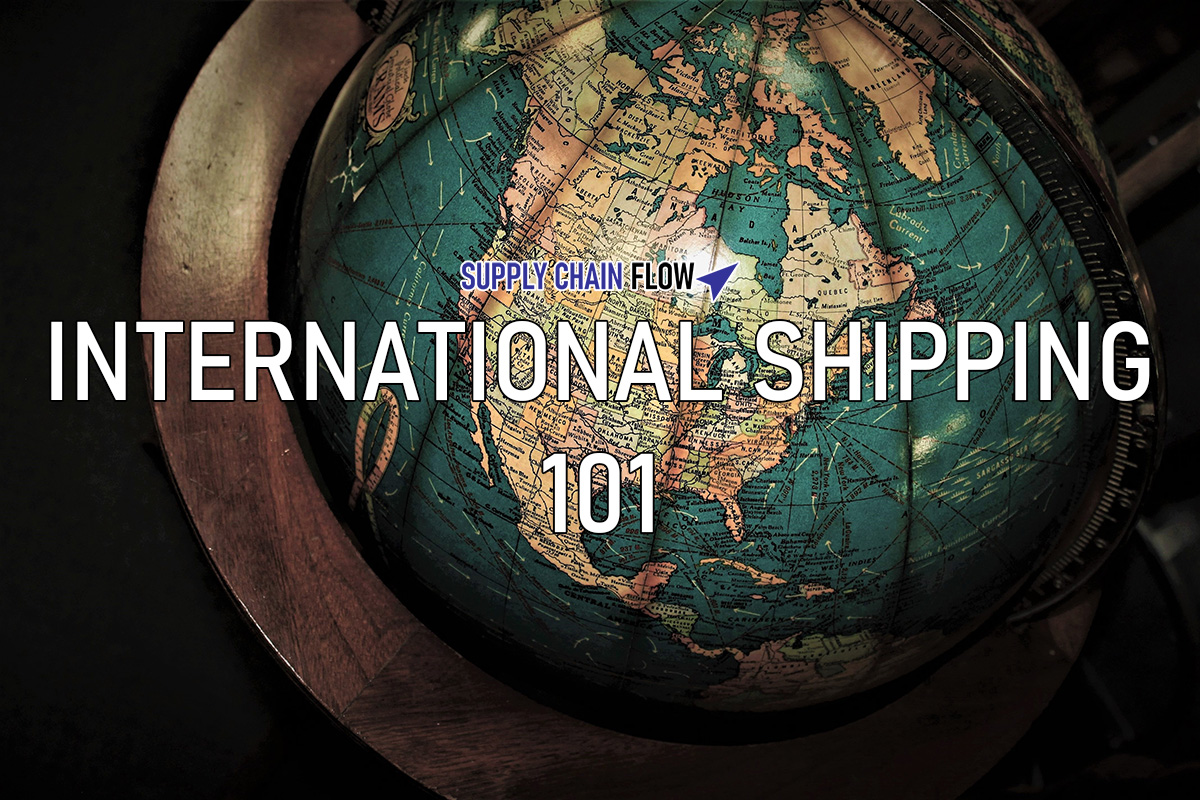
International Shipping 101
Whether you work directly in international logistics or not, with today's Global supply chain you will encounter materials that either need to be sourced from across the world or exported to your far-away customers. First and foremost, International Shipping is an extremely complicated topic due to the many parties that can be involved in the process. In a post-COVID world, this part of your logistics can be absolutely vital, as vessel space, delays, and "black swan" events become more and more a concern.
To start with this 101, I'm going to go over key terminology which should lay the foundation for your understanding. Be gentle with your international logistics providers.
Freight Forwarder
A freight forwarder is a company tasked with getting your freight from one side of the globe to the other. They'll help organize your shipping documents and send them to the right people (hopefully). Your freight forwarder can also be your customs broker, but not all customs brokers are freight forwarders, meaning the broker doesn't always handle the actual negotiation of space on vessels, etc. Freight forwarders are experts at negotiating the best rates and securing agreements with carriers.
Customs Broker
Customs Brokers are the party that processes either the import or export customs paperwork and submits directly to customs. Your freight forwarder can also provide customs services. There is a customs broker on both sides - the exporting country and the importing country. Each country will have different regulations, so it is best to have a broker who is local and experienced, so they know exactly what is required by their country. Even better if your broker has a lot of experience exporting to the country you are shipping to, as the destination country could require extra documentation needed from the origin country. One example of this is exporting to Brazil can require an import license on Brazil's side depending on value and type of materials.
NVOCC
Your freight forwarder can sometimes also be an NVOCC, or "Non-Vessel Operating Common Carrier". NOVCC's move freight under their own house bills. Neither the NVOCC nor the Freight forwarder typically move freight on their own vessels. NVOCC's will usually have their own containers (They own the ocean container that the freight will travel on). NVOCC's can issue their own bills of lading, but freight forwarders can't.
You can find the FMC list of approved NVOCC's here.
3PL and 4PL
A 3PL (Third Party Logistics provider) is a provider involved in the movement of freight that is neither the shipper nor receiver - one example of this is the trucking company that picks up and delivers the freight. Sometimes there is another company involved that manages the 3PL carriers, such as a Managed transportation department. They are occasionally referred to as 4PL - they are an additional 4th party that manages the 3rd party providers. Since there are so many parties involved in shipping, typically we just call all non-shipper and non-receivers 3PLs to keep things simple. Otherwise we'd start getting into 5PLs and 6PLs and that's just confusing.
Ocean Carrier
The actual carrier operating the vessel. Some examples are Sealand, Hapag-Lloyd, and MSC. With many acquisitions and mergers of ocean carriers, sometimes you may have multiple carriers sharing vessels.
Dray carrier
This is the specialized trucking company that has the drivers and equipment to pick up ocean containers directly from ports or inland rail terminals and deliver to warehouses. Typically they are well versed in their local port operations, and the drivers know how to navigate through rail yards.
Dray Chassis
A chassis is the equipment needed in order to load the ocean container onto a truck. The dray chassis is specific to ocean containers. Sometimes the ocean carrier or rail terminal will provide a chassis, but sometimes they run out, so optimally your dray carrier provides their own chassis (Typically worked out in your contract and for a fee) that makes the pickup or export process a little more seamless.
FCL
FCL means Full Container Load. This means, when booking FCL, you book the entire container - no other freight will be inside the ocean container so your packager is free to secure your freight in any way necessary.
LCL
LCL means Less than Container Load. This means your freight will be packaged alongside other companies' freight, in an effort to save space. Be warned, that this typically adds a leg to the process - LCL freight doesn't go directly from the ocean port to the warehouse, it needs to stop at the facility that unpacks the freight and then distributes from there. This could potentially cause a delay that may not normally be seen in an FCL shipment - by a few days maybe.
House Bill
Master Bill
